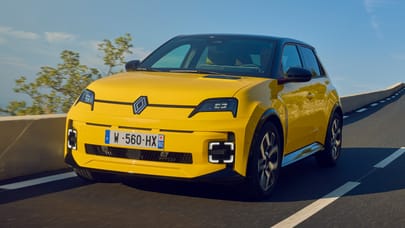
Fail of the century #26: Suzuki Celerio
In this global, interconnected world, it’s notoriously tricky to come up with a new car name that’s (a) catchy, (b) original and (c) employable around the world without offending literally millions of people. Mitsubishi’s Pajero may have sounded jaunty to English ears, but Spanish speakers didn’t appreciate the insult.
So maybe ridiculing the Celerio for its absurd, vegetably name is a blinkered, Anglophone viewpoint. Maybe Celerio sounds entirely sensible to non-English ears.
After all, Suzuki claims the name derives from the Latin root ‘celer’, meaning ‘swift’ or ‘fast’, as in ‘accelerate’. Maybe, outside the Anglosphere, ‘Celerio’ conjures images of great speed and potency.
Problem with this theory is: celery’s celery in a whole bunch of other languages. In German, French, Swedish, Uzbek, Walloon and many tongues beside, the word for celery is... celery. Or something very very close. In many, if not most, corners of the world, when people hear ‘celerio’, they’re going to picture the green stalky vegetable.
And let’s be honest, if you’re naming a car after a foodstuff, celery’s not high on the list, is it? What did Suzuki reject? Broccolio? Swedio? Turnipio? Nothing against celery, a mirepoix base wouldn’t be the same without it, but it’s not the most glamorous of foodstuff, is it? Versatile, yes, but fundamentally a bit bland and watery. Well, at least you can’t accuse Suzuki of false advertising...
Top Gear
Newsletter
Thank you for subscribing to our newsletter. Look out for your regular round-up of news, reviews and offers in your inbox.
Get all the latest news, reviews and exclusives, direct to your inbox.
Trending this week
- Electric
Top Gear's top 20 electric cars










